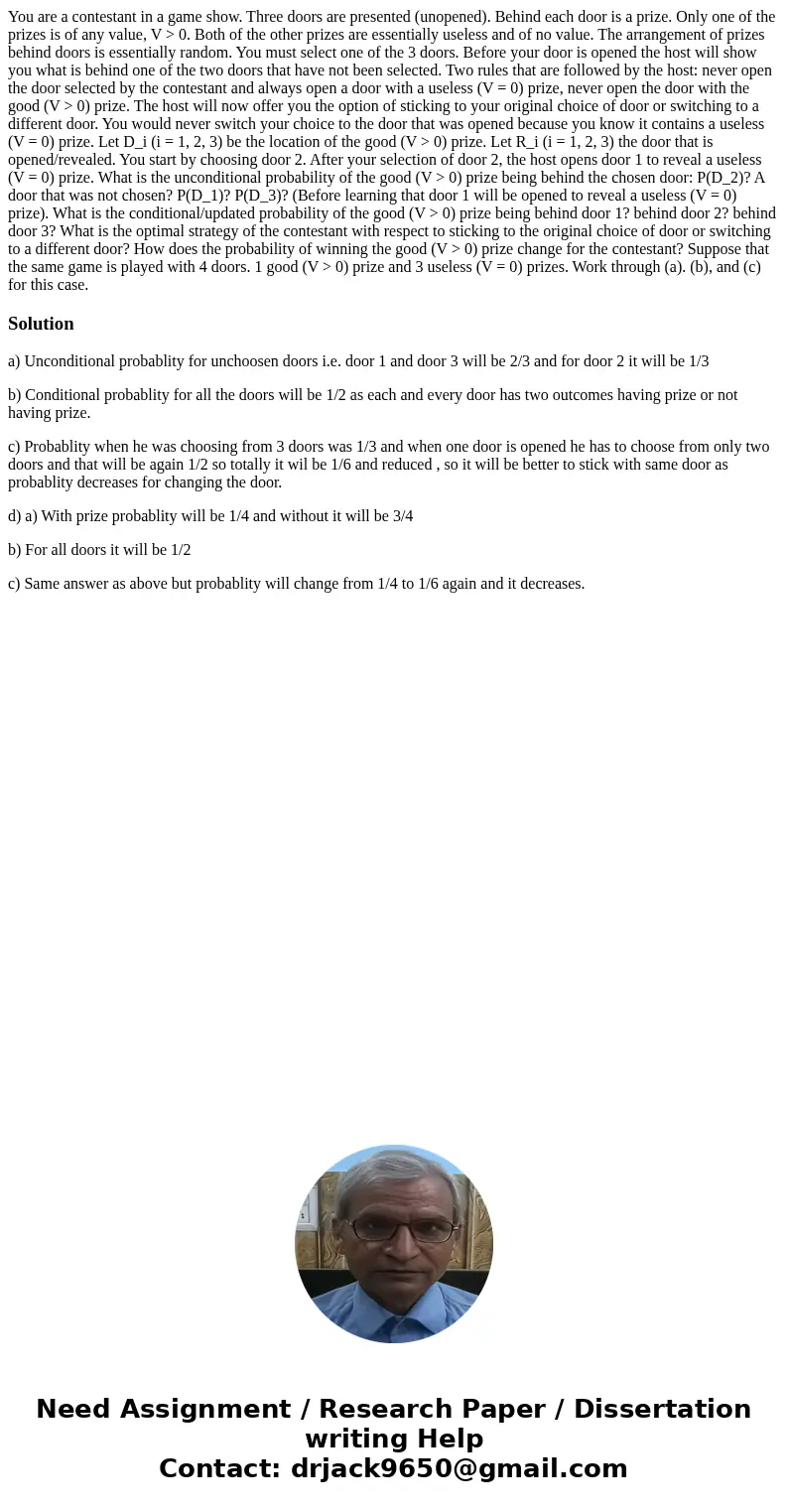You are a contestant in a game show Three doors are presente
You are a contestant in a game show. Three doors are presented (unopened). Behind each door is a prize. Only one of the prizes is of any value, V > 0. Both of the other prizes are essentially useless and of no value. The arrangement of prizes behind doors is essentially random. You must select one of the 3 doors. Before your door is opened the host will show you what is behind one of the two doors that have not been selected. Two rules that are followed by the host: never open the door selected by the contestant and always open a door with a useless (V = 0) prize, never open the door with the good (V > 0) prize. The host will now offer you the option of sticking to your original choice of door or switching to a different door. You would never switch your choice to the door that was opened because you know it contains a useless (V = 0) prize. Let D_i (i = 1, 2, 3) be the location of the good (V > 0) prize. Let R_i (i = 1, 2, 3) the door that is opened/revealed. You start by choosing door 2. After your selection of door 2, the host opens door 1 to reveal a useless (V = 0) prize. What is the unconditional probability of the good (V > 0) prize being behind the chosen door: P(D_2)? A door that was not chosen? P(D_1)? P(D_3)? (Before learning that door 1 will be opened to reveal a useless (V = 0) prize). What is the conditional/updated probability of the good (V > 0) prize being behind door 1? behind door 2? behind door 3? What is the optimal strategy of the contestant with respect to sticking to the original choice of door or switching to a different door? How does the probability of winning the good (V > 0) prize change for the contestant? Suppose that the same game is played with 4 doors. 1 good (V > 0) prize and 3 useless (V = 0) prizes. Work through (a). (b), and (c) for this case.
Solution
a) Unconditional probablity for unchoosen doors i.e. door 1 and door 3 will be 2/3 and for door 2 it will be 1/3
b) Conditional probablity for all the doors will be 1/2 as each and every door has two outcomes having prize or not having prize.
c) Probablity when he was choosing from 3 doors was 1/3 and when one door is opened he has to choose from only two doors and that will be again 1/2 so totally it wil be 1/6 and reduced , so it will be better to stick with same door as probablity decreases for changing the door.
d) a) With prize probablity will be 1/4 and without it will be 3/4
b) For all doors it will be 1/2
c) Same answer as above but probablity will change from 1/4 to 1/6 again and it decreases.

 Homework Sourse
Homework Sourse